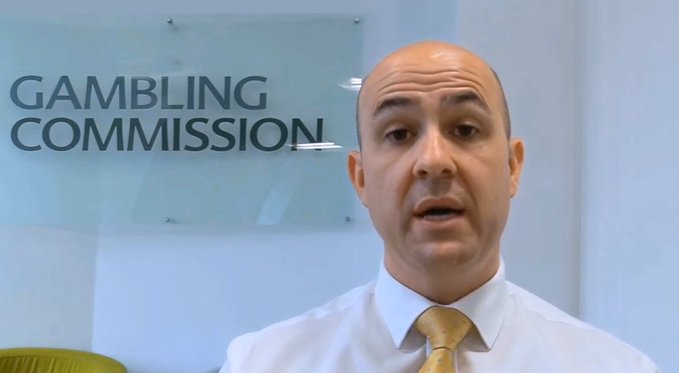The Fall of the Chair: Is Lisa Nandy Brave Enough to Sack Andrew Rhodes?
if accountability were a prerequisite for keeping one’s job, Rhodes would be out faster than a losing ticket on a favourite
Ed Grimshaw
12/5/20243 min read


The Gambling Commission is, once again, in the headlines for all the wrong reasons. Its chair has fallen on his sword, presumably deciding that being the figurehead of an embattled regulator riddled with missteps is an honour he no longer wishes to bear. The question now turns to Andrew Rhodes, the Commission’s CEO, and whether Culture Secretary Lisa Nandy has the stomach—or the strength—to give him the boot.
Let’s be clear: if accountability were a prerequisite for keeping one’s job, Rhodes would be out faster than a losing ticket on a favourite. From the £3 billion affordability checks fiasco to the £200m Desmond debacle, Rhodes’s tenure has been a masterclass in regulatory mismanagement. But whether Nandy has the political capital, or even the inclination, to push him out is another matter entirely.
The Chair Jumps; The CEO Clings On
The resignation of the Gambling Commission’s chair is a symbolic gesture, a way of signalling that the organisation takes its failures seriously. But it does little to address the structural rot at the top. Rhodes remains the captain of a ship that’s not just taking on water but actively sinking.
His leadership has overseen:
The Affordability Checks Disaster: A policy so unpopular and poorly implemented that it has alienated punters, crippled British horseracing, and raised more questions than it has answered about its effectiveness.
The National Lottery Fiasco: The awarding of the licence to Allwyn has led to delays, legal challenges, and now a £200m lawsuit from Richard Desmond—a drama worthy of a Netflix series.
Public Confidence Collapsing: The perception of the Commission as a heavy-handed, out-of-touch regulator is now entrenched.
Despite these failures, Rhodes has shown no sign of stepping aside. If anything, he seems content to weather the storm, perhaps banking on the government’s reluctance to tackle such a high-profile sacking.
Lisa Nandy: Strong Enough to Swing the Axe?
As Culture Secretary, Lisa Nandy has the power to remove Rhodes. But the question is whether she’ll take the plunge—or whether political expediency will stay her hand.
The Political Cost of Action:
Sacking Rhodes would be seen as a decisive move, but it would also open up Nandy to scrutiny over the broader handling of gambling regulation. Critics could argue that Rhodes is being scapegoated for a policy agenda driven by the government itself, putting Nandy in the firing line for any future regulatory failures.The Political Cost of Inaction:
Allowing Rhodes to remain risks perpetuating the narrative that the Gambling Commission is a runaway train with no one at the controls. If the £200m Desmond settlement goes through, or if affordability checks cause further damage to the gambling ecosystem, Nandy’s reluctance to act could come back to haunt her.Does Nandy Have the Clout?
While Nandy has shown promise as a politician, this is her first major test as Culture Secretary. Gambling regulation is a highly charged issue, and taking on a figure like Rhodes would require a degree of political bravery that some might question.
Why Sacking Rhodes Matters
Removing Rhodes wouldn’t just be a symbolic gesture—it’s a necessary step to rebuild trust in the Gambling Commission. His continued presence at the helm sends a message that accountability is optional, even in the face of repeated failures.
The Desmond lawsuit alone is reason enough for Rhodes to go. The optics of a £200m settlement, coupled with Allwyn’s persistent struggles, have left the Commission’s reputation in tatters. If Rhodes remains in his role, it will only reinforce the perception that the regulator is incapable of meaningful reform.
The Case for (and Against) Rhodes
Why He Should Go:
Accountability: As CEO, Rhodes is ultimately responsible for the Commission’s decisions and their fallout.
Reputation: His continued tenure undermines public confidence in the regulator.
Precedent: Allowing Rhodes to stay sets a dangerous precedent for other public bodies.
Why He Might Stay:
Deflecting Blame: Rhodes can argue he’s simply enforcing government policies, shifting responsibility back to ministers.
Continuity: Removing him mid-crisis could create more instability at the Commission.
Politics: Sacking Rhodes could expose Nandy to backlash from both pro-gambling and anti-gambling factions.
What Should Happen Next?
If Lisa Nandy wants to restore confidence in the Gambling Commission, she must act decisively. That means:
Removing Rhodes: A new CEO, with a mandate for reform, is essential to change the narrative.
Overhauling the Commission: The regulator needs structural changes to ensure it balances consumer protection with industry stability.
Rebuilding Relationships: Whether it’s with horseracing, bookmakers, or the National Lottery operator, the Commission must rebuild trust with its stakeholders.
The Final Gallop
Lisa Nandy has a choice to make. She can keep Andrew Rhodes in place and risk further damage to the Gambling Commission’s credibility, or she can act boldly and signal a new direction for gambling regulation in the UK.
Rhodes may not be solely responsible for the Commission’s failures, but his departure would send a powerful message: accountability matters. Whether Nandy is strong enough to wield the axe, however, remains to be seen.
One thing is clear: the chair has fallen on his sword. It’s time for the CEO to do the same—or for Nandy to step up and deliver the decisive leadership the Commission so desperately needs.
